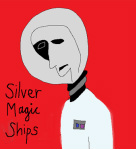
On a recent visit to the Walker Art Gallery I came across a book for sale entitled, An Illustrated Everyday History of Liverpool and Merseyside. It is based largely on a series of directories that began to be published in the 1700s. A compendium of short paragraphs are arranged chronologically, each providing little snippets of information. We learn, for example, that an elephant called Rajah (apparently worth £1,000) killed its keeper at the Zoological Gardens some time during the early summer of 1848. On 17th June of that year it was shot dead.
Whilst the Everyday History of Liverpool and Merseyside gives us the name of a mid-19th century elephant, it does not reveal the identity of its unfortunate keeper. Despite this omission, the introduction claims that this is "the real history of… what happened to the people" (Spiegl 1996: 5).
This got me thinking about all the different sorts of history on offer. Alongside its "everyday" variant there is public history, people's history and social history. Are there any differences between these types of "history from below"?
History also has its subsets (e.g. military history) and disciplinary offshoots (such as art history or design history). Each modifier points to an omission or exclusion, hence women's history and black history.
The Everyday History of Liverpool and Merseyside claims to recount events to which "[p]eople of any age can relate: after all, they still walk the same streets, see the same buildings and landscapes, hear the same voices – and often bear the same names" (Spiegl 1996: 5). So this compendium of happenings is both a local history and a form of collective, family history.
We are told that each entry in this Everyday History "makes the past of the City spring to life" (Spiegl 1996: 7). This "living history" is therefore, properly speaking, heritage: "history today", the past in the present.
But where does this leave plain old History (with a capital "H")? Is History in truth esoteric, elitist and exclusionary? Perhaps. Because if it's not "everyday" then it must be "extraordinary" or at the very least "special". History is from above not below. Male not female. Dead not alive. Universal not local. History tries to convince us that it tells the tales of "somebody people", not "nobody people" (Bowie 1972).
All this leaves me with a troubling realisation: History isn't going to be interested in a nobody person like me. Even everyday history is more interested in elephants than their keepers.
_________
References
Bowie, David (1972) "Five Years", The Rise and Fall of Ziggy Stardust and the Spiders from Mars, RCA Records
Spiegl, Fritz (1996) An Illustrated Everyday History of Liverpool and Merseyside, Scouse Press, Liverpool






